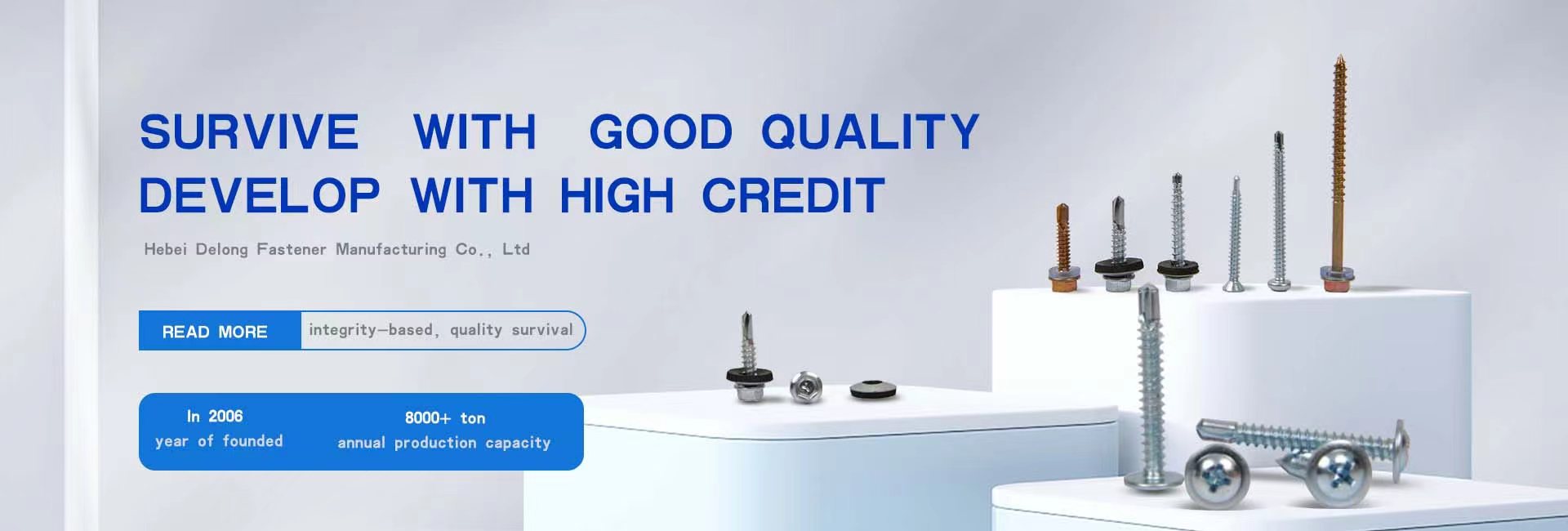high quality drywall screw types
Understanding High-Quality Drywall Screw Types
When it comes to drywall installation, the screws you choose can significantly affect the overall durability and finish of your project. High-quality drywall screws are designed to securely fasten drywall to various substrates while minimizing damage to the material. Understanding the different types of drywall screws available can help you select the right one for your specific application, ensuring a professional-looking result.
Common Types of Drywall Screws
1. Standard Drywall Screws These are specifically designed for attaching drywall to wood or metal. They are typically made from steel and come with a black phosphate coating to resist rust. Standard drywall screws have a bugle head that allows for a flush finish with the drywall surface, making it easier to conceal with joint compound.
2. Coarse Thread Screws Ideal for attaching drywall to wooden studs, coarse thread screws have a thicker, sharper thread designed to grip the wood securely. They are essential for ensuring a strong hold in softer materials, making them a popular choice among contractors.
3. Fine Thread Screws These screws are designed for use with metal studs. The fine threads allow for a more precise grip, providing a solid connection without damaging the metal frame. Fine thread screws are highly effective when you need to fasten drywall in commercial projects where metal studs are commonly used.
4. Self-Drilling Screws Also known as self-tapping screws, these fasteners eliminate the need for a pilot hole, making the installation process quicker and more efficient. They are particularly useful when working with metal studs and come with a sharp tip that drills into the metal as you drive the screw in.
5. Composite Screws Some modern construction projects use composite screws, made from composite materials, to attach drywall in environmentally friendly builds. These screws are less prone to rust and corrosion, making them an excellent choice for humid environments.
high quality drywall screw types

Special Features of High-Quality Drywall Screws
High-quality drywall screws often incorporate special features that enhance their performance
- Corrosion Resistance Many high-grade drywall screws come with advanced coatings such as zinc plating or galvanization, which protect against rust and corrosion. This is particularly important in areas with high humidity or where moisture may be present.
- Thread Design The design of the threads can significantly impact the screw's performance. High-quality screws often feature a unique thread design that enhances holding power, reduces the chance of strip-out, and allows for smoother driving into the drywall and substrate.
- Strength and Durability High-quality materials used in the manufacturing of these screws contribute to their overall strength and durability, ensuring they can withstand the stresses of various applications without breaking or bending.
Choosing the Right Screw for Your Project
When selecting drywall screws for your project, it's crucial to consider the type of substrate you are working with. For wooden studs, coarse thread screws work best, whereas fine thread screws are suited for metal studs. Additionally, consider the environment where the drywall will be installed. If moisture is a concern, opt for screws with corrosion-resistant properties.
In conclusion, choosing high-quality drywall screws is essential for achieving a long-lasting and professional finish in your drywall installation project. By understanding the different types of screws available and their specific features, you can ensure that you select the best fastener for your needs, which will result in a stable and attractive installation. Investing in quality screws not only enhances the integrity of your project but also saves time and money in maintenance down the line.
-
Top Choices for Plasterboard FixingNewsDec.26,2024
-
The Versatility of Specialty WashersNewsDec.26,2024
-
Secure Your ProjectsNewsDec.26,2024
-
Essential Screws for Chipboard Flooring ProjectsNewsDec.26,2024
-
Choosing the Right Drywall ScrewsNewsDec.26,2024
-
Black Phosphate Screws for Superior PerformanceNewsDec.26,2024
-
The Versatile Choice of Nylon Flat Washers for Your NeedsNewsDec.18,2024










